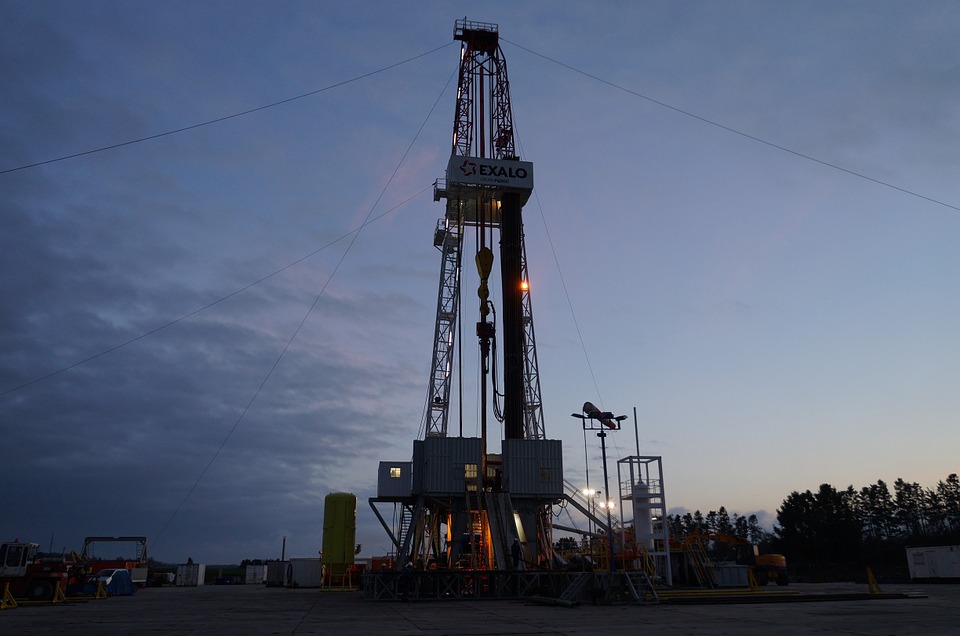Gas prices in Los Angeles County hits new record high of $6.466 – nearly double the national average
10/04/2022 / By Arsenio Toledo

Gas prices in Los Angeles County hit a record high of $6.466 per gallon on the morning of Monday, Oct. 3.
That price topped the previous record high of $6.462 per gallon set on June 14. The average price in the country is 62.6 cents more than a week ago, $1.202 higher than a month ago and $2.05 greater than last year. (Related: Gas prices to rise after midterms as Biden ends raid on national oil reserve.)
Figures from AAA and the Oil Price Information Service noted that the average price of gas in Los Angeles County has risen nonstop for the past 31 days. On Saturday, Oct. 1, the price rose by one cent, and on Thursday, Sept. 29, it rose by 15.3 cents – the largest recorded daily increase since Oct. 5, 2012, when the price rose by 19.2 cents.
Ironically, Monday’s increase in gas prices, which led to the new record high is actually the smallest rise since the half-cent increase on Sept. 19.
Los Angeles County’s price is the highest in the state, but its neighbors in Southern California have similarly high average gas prices.
Neighboring Orange and Ventura Counties have prices of $6.42 and $6.40 per gallon, respectively. Orange County broke its record on Saturday when prices rose to $6.429 per gallon.
All three counties have higher average prices than the statewide average of $6.38, which is just about five cents short of the record high set back in June.
California’s prices likely to keep increasing despite stable prices in most of the country
After nearly 100 days of consecutive decline, gas prices all over the country started creeping upward again in September.
California’s price increases are part of a trend, especially on America’s West Coast. Alaska, Washington, Oregon, Nevada and Arizona have also seen large jumps in gas prices, especially in the last week of September.
The current national average is hovering between $3.79 to $3.8 per gallon. On the West Coast, drivers are paying an average of more than $.20 more for a gallon of gas than they were a month earlier.
By contrast, drivers in Texas are paying an average of $3.09 a gallon, a drop of three cents from last week and 70 cents less than the national average.
Andrew Gross, an AAA spokesperson, attributed much of the stark difference between the West Coast and the rest of the country to problems at refineries in the region affecting supply. At least six refineries in California are not producing due to maintenance.
AAA added that the price rise can also be attributed to the rising demand for gas. This week, demand has risen to 8.83 million barrels from 8.32 million barrels last week. If demand continues to rise and supplies remain tight, drivers could be paying even more by Saturday, Oct. 8.
Newsom blaming gas companies for price increases
Gov. Gavin Newsom has blamed rising costs in California on oil companies. In a video statement, he claimed that oil companies are ratcheting up prices while providing “no explanation” as to why. This runs contrary to AAA’s analysis, which has accounted for fuel production, supply and demand.
Newsom tried to point to the stark difference in gas prices between California and the rest of the country – especially Texas – of the supposedly extortionate attitude of oil companies with facilities in the state.
“The degree of diversion from national prices has never happened before,” claimed Newsom. “The fact is, [oil companies] are ripping you off.”
To offset the price increases, Newsom is asking refineries to switch early to their winter blend gas several weeks ahead of schedule. The winter blend is typically cheaper, but it produces more of the greenhouse emissions the state is trying to restrict.
Analysts say it is unclear how different prices will be after this order. If the state’s refineries comply, prices could reduce but only by around 25 cents and only after two weeks.
Some Californians could also see some relief in the form of gas rebate checks for state residents who filed their 2020 tax returns.
Learn more about what’s happening in California at CaliforniaCollapse.news.
Watch this clip from Fox News discussing the problems with California’s ban on the sale of new gas-fueled cars by 2035.
This video is from the News Clips channel on Brighteon.com.
More related stories:
US facing natural gas shortage due to record LNG exports to Europe.
California bans gas-powered water heaters and furnaces to push “green” agenda.
JPMorgan CEO: Vetoing fossil fuel projects would send US into a death spiral.
Americans to pay more for gas as EU sanctions on Russian oil take effect by end of 2022.
Cities in California are BANNING construction of new gas stations.
Sources include:
Submit a correction >>
Tagged Under:
bubble, California, california collapse, collapse, economic collapse, economics, economy, energy, energy supply, fuel demand, fuel prices, fuel supply, gas prices, Gavin Newsom, inflation, power, power grid, West Coast
This article may contain statements that reflect the opinion of the author
RECENT NEWS & ARTICLES
COPYRIGHT © 2022 FuelRationing.news
All content posted on this site is protected under Free Speech. FuelRationing.news is not responsible for content written by contributing authors. The information on this site is provided for educational and entertainment purposes only. It is not intended as a substitute for professional advice of any kind. FuelRationing.news assumes no responsibility for the use or misuse of this material. All trademarks, registered trademarks and service marks mentioned on this site are the property of their respective owners.



















